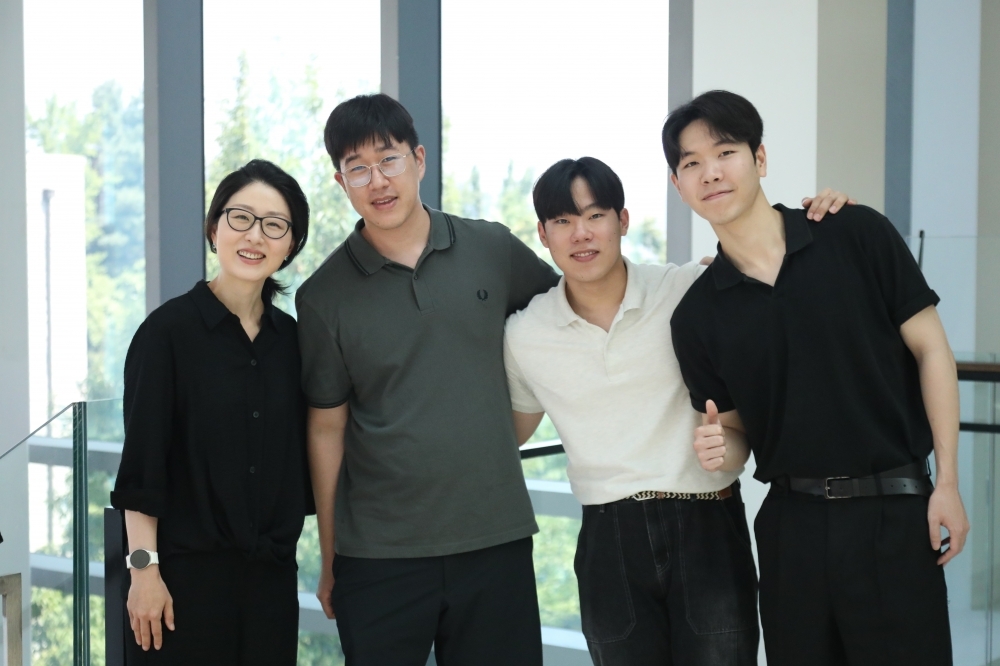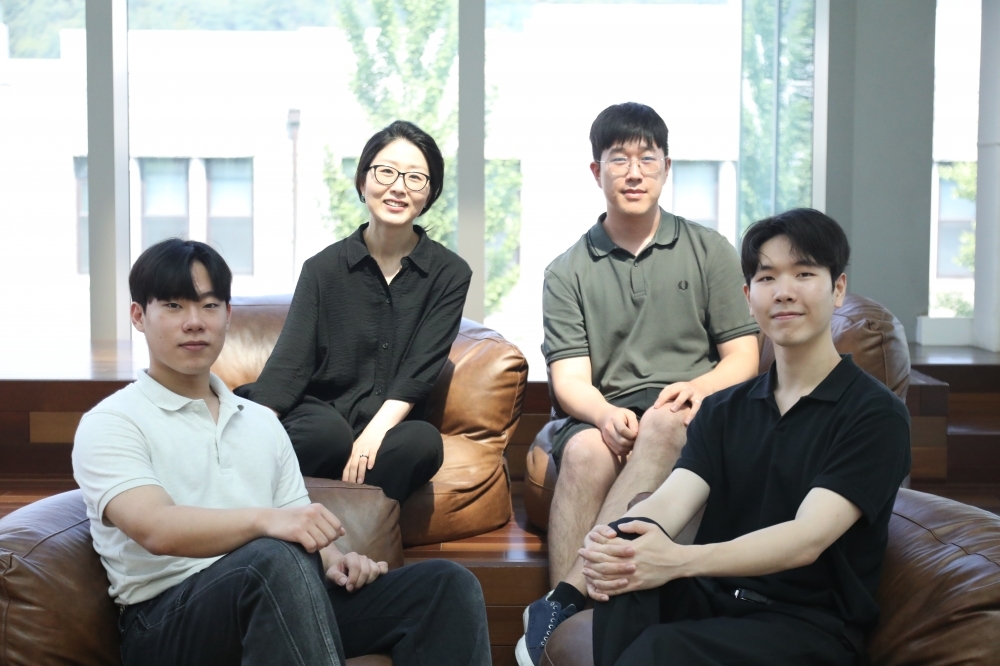News
KUBS News
[Interview] Campus CEO Startup Competition Winner ‘Ourtube’
– A Challenge Born from the ‘Strategic Technology Commercialization’ Course
Starting a business is an excellent way to learn how to manage failure. The journey of Team Ourtube, which began in Professor Jinyoung Kim’s entrepreneurship course Strategic Technology Commercialization, is a prime example. Their innovative idea—a recommendation platform designed to break the filter bubble effect of YouTube’s algorithm—won them first place in the Campus CEO Startup Competition. Behind this achievement was a classroom environment that embraced trial and error, along with team dynamics fueled by strong engagement. KUBS News sat down with the team to hear how their entrepreneurial idea became a powerful platform for learning and growth.

■ Interview with Professor Jinyoung Kim (Special Lecturer)
Q1. Was there anything particularly noteworthy about the winning team’s development during the course?
A1. Entrepreneurship courses are more like juggling practice than traditional lectures. The instructor isn’t the only one tossing balls in the air—each student must learn to juggle their own. Some start the semester already holding a ball, while others don’t even know how to make one. By the end, my goal is for every team to put on its own juggling performance. Rather than simply delivering knowledge, this course placed a greater focus on cultivating the ability to manage failure.
In that sense, Team Ourtube was especially memorable. Their dedication and focus were evident right through to the end of the semester, and their passion truly stood out. I hope that this hands-on “juggling” experience will help them pursue their own ideas with confidence in the future.
Q2. What kind of support do you think is still needed for student entrepreneurship?
A2. KUBS offers a robust entrepreneurial infrastructure, including the Startup Station. Of course, not all students aim to become entrepreneurs, but an increasing number are wondering how successful founders achieve what they do. I believe we need more accessible opportunities for students to try their hand at entrepreneurship in a low-pressure setting. If on-campus programs—such as the Crimson Startup Support Group—continue to diversify and lower their entry barriers, they can serve not only as platforms for launching startups, but also as spaces where students can safely practice managing failure.
Q3. Any advice for students aspiring to start their own ventures?
A3. Failure should be experienced repeatedly on a small scale, quickly, and within a manageable scope. Just as you build muscle at the gym, the ability to manage failure can also be developed through practice. At KUBS, we offer a range of entrepreneurship courses taught by faculty members who bring both academic expertise and real-world experience. I encourage any students interested in startups to take advantage of these opportunities to strengthen their mental muscles.

■ Interview with the Winning Team ‘Ourtube’
The participants were Hyunjoon Koh (Class of 2019), Jaewook Shim (Class of 2021), and Kiyong Choi (Class of 2021). Team member Byeongchan Kim (Class of 2021) was unable to attend the interview due to personal reasons.
Q1. What led you to participate in the startup competition?
A1. Hyunjoon Koh: Taking Professor Kim’s entrepreneurship course was the biggest reason. I remember giving an elevator pitch during midterms, and then the class voted for team leaders. In the next session, we had a casual “happy hour” with snacks, where we interviewed classmates on the spot to form our teams. That spontaneous and interactive process really strengthened our team chemistry, and we were proud of the result. When the professor recommended the competition, we naturally decided to take on the challenge.
Jaewook Shim: The team leader’s idea aligned closely with my own concerns about the “filter bubble” problem. I was intrigued and wanted to help bring the concept to life. Since we were already proud of what we had produced in class, joining the competition was a natural next step for us.
Kiyong Choi: I joined the team a bit later. I had been studying software development on my own and was interested in service design, so when Jaewook invited me to help on the technical side, I agreed—even though I didn’t feel fully confident in my skills. With the team’s encouragement, I decided to participate.
Q2. What was the core idea behind your winning startup concept?
A2. Hyunjoon Koh: Ourtube is a platform that identifies and reduces bias in YouTube’s recommendation algorithm. It promotes more balanced viewing by leveraging algorithm scores and MBTI analysis to recommend a wider variety of content, addressing the filter bubble problem. The name “OurTube” reflects our aim to shift from “YOU” to “OUR,” thereby creating a shared experience rather than an isolated one.
Q3. What was the biggest challenge during preparation process?
A3. Hyunjoon Koh: As a senior preparing for job hunting, it was challenging to juggle both the competition and job applications. Initially, our idea focused on political content, but after receiving feedback about its limited profitability, we decided to broaden the scope, which required a lot of careful consideration.
Jaewook Shim: It was my first time pitching, and conveying an idea clearly within a short time was more difficult than I expected. I studied various pitch examples on YouTube and practiced extensively. I eventually presented for our team at the Campus CEO Startup Competition, and through that experience, my presentation skills improved significantly.
Kiyong Choi: Since all of us were business majors, we were concerned about the technical feasibility of our concept. To address this, we sought technical advice from a friend in computer engineering and also researched possible legal risks.
Q4. What are your plans moving forward after winning the competition?
A4. Hyunjoon Koh: I hope to apply for other government support programs, such as the Pre-Startup Package. We are building on the feedback we received—especially regarding feasibility and profitability—as we prepare for the next stage.
Jaewook Shim: The most valuable part of the competition was receiving feedback from industry professionals. I would like to continue participating in other competitions and startup support programs whenever the opportunity comes up.
Kiyong Choi: While I don’t yet have the technical skills to immediately implement our idea, I’m refining my personal portfolio based on the team leader’s concept. Even at our post-competition team dinner, we talked about regrouping and making another serious attempt. I’m still very optimistic about collaborating again in the future.


